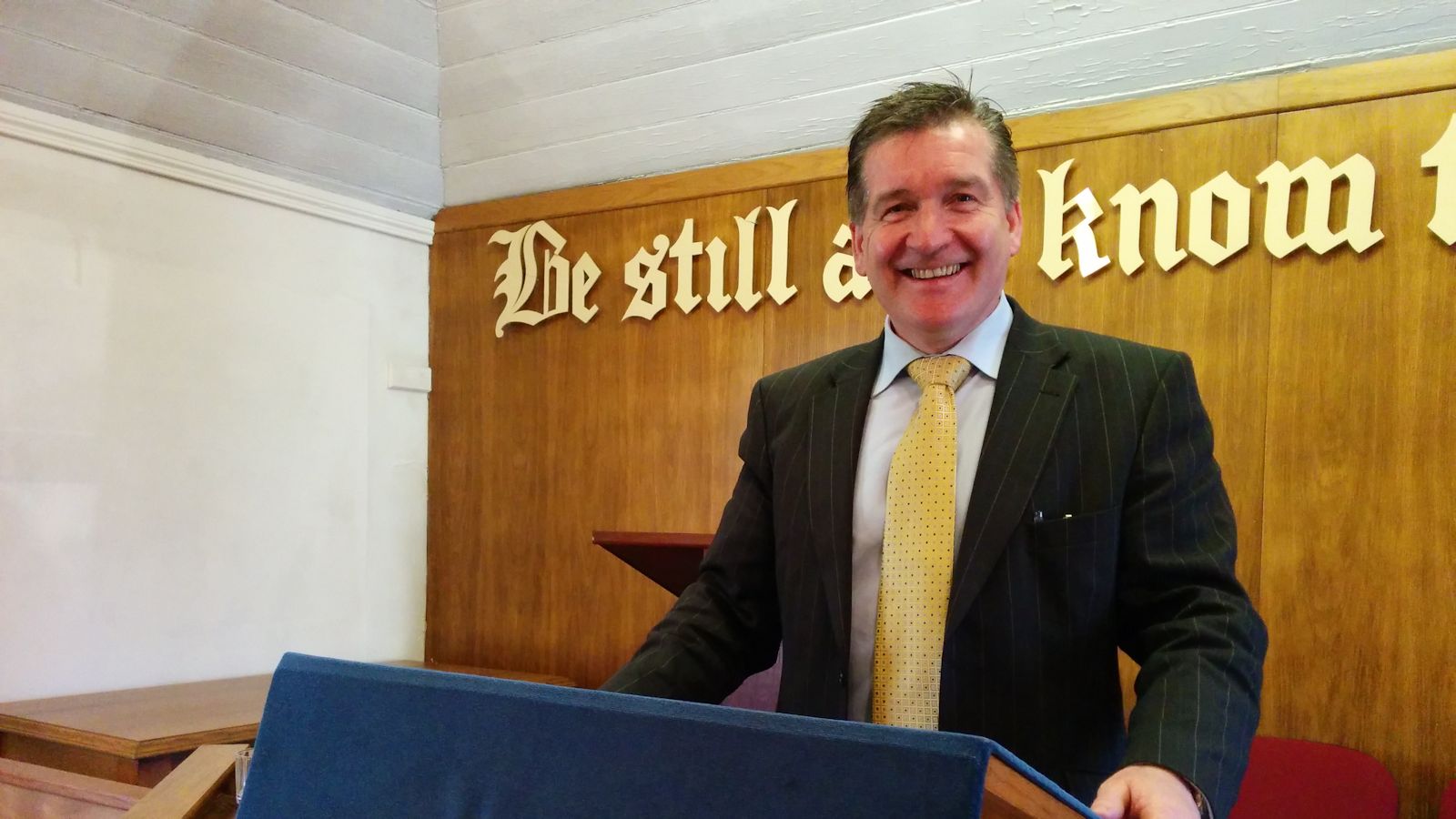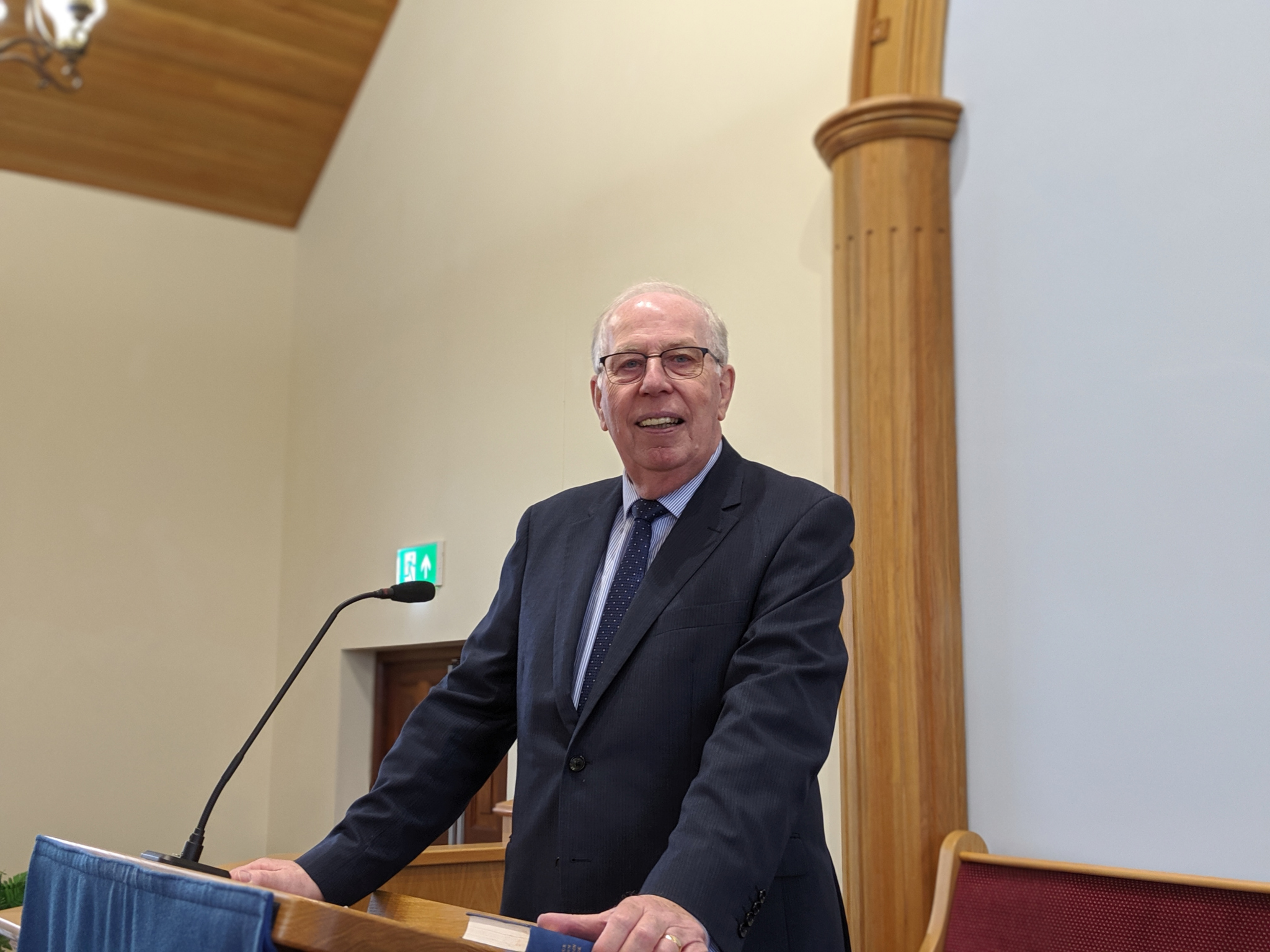Date: SUN 7:00pm 3rd August 2025
Preacher: Rodney Mitchell
Bible Reference: Genesis 7:5
And Noah did according unto all that the LORD commanded him.
Sermon Summary: A Call to the Family (Genesis 7:1-7)
The sermon, titled “A Call to the Family,” is rooted in Genesis 7:1-7, a well-known passage from the Old Testament recounting the story of Noah and the Ark. The preacher uses this text to present the Gospel message, drawing parallels between God’s call to Noah and his family to enter the ark and the call to salvation through Jesus Christ today. The sermon is structured around four key points: the setting of the call, the subjects of the call, the substance of the call, and the source of the call.
1. The Setting of the Call
The preacher begins by establishing the backdrop to God’s call to Noah in Genesis 7:1, highlighting two critical aspects of the context:
- Abounding Iniquity: The world in Noah’s time was steeped in sin. Genesis 6:5 describes the “wickedness of man” as great, with every thought of humanity being “only evil continually.” Genesis 6:11 further notes that the earth was “corrupt before God” and “filled with violence.” This global depravity mirrors the moral and spiritual state of modern society, where sin, corruption, and evil are pervasive. The preacher underscores that this backdrop of iniquity is the setting in which the Gospel is preached today, urging listeners to recognise the sinful state of the world.
- Approaching Calamity: God’s response to humanity’s sin was a coming judgement—a catastrophic worldwide flood (Genesis 6:7, 13, 17; 7:11-12). The preacher cites 2 Peter 3:6 to affirm the global scale of the flood, countering claims that it was merely a local event. This judgement was not just a historical event but a warning of future divine judgement. The preacher warns that, just as God’s patience was exhausted in Noah’s day (Genesis 6:3), a day of vengeance and wrath is coming. Listeners are urged to heed God’s call to salvation to escape this impending calamity.
2. The Subjects of the Call
The call in Genesis 7:1 is directed to Noah and “all thy house,” encompassing his entire family—his wife, sons, and daughters-in-law, totalling eight people. The preacher emphasises God’s focus on the family unit:
- Noah and His Family: Noah is presented as a righteous man (Genesis 7:1), a figure of interest to God, as seen in Genesis 6–9. The call extends to his household, highlighting the importance of family salvation. The preacher expresses a heartfelt desire for entire families to be united in Christ, praying for parents, children, and grandchildren to be saved.
- God’s Emphasis on Families: Referencing Genesis 12:3, where God promises Abraham that “in thee shall all families of the earth be blessed,” the preacher underscores God’s priority on families. The term “house” in Genesis 7:1 refers not to a physical building but to the family unit, reinforcing that salvation is a family matter. Acts 16:31 is cited, where Paul tells the Philippian jailer, “Believe on the Lord Jesus Christ, and thou shalt be saved, and thy house.” The preacher encourages parents to lead their families toward salvation, echoing Joshua’s declaration, “As for me and my house, we will serve the Lord” (Joshua 24:15).
3. The Substance of the Call
The substance of the call is God’s invitation to Noah and his family to “come… into the ark” (Genesis 7:1), which the preacher interprets as a type or picture of salvation through Jesus Christ:
- Formation of the Ark: In Genesis 6:14, God provides detailed instructions for building the ark, specifying its size, materials, and design, including a single door and pitch for waterproofing. The preacher sees the ark as a symbol of Christ, God’s provision for salvation. The wood represents the cross, the door signifies Jesus as the only way to salvation (John 10:9), and the pitch prefigures Christ’s atoning blood. God’s initiative in planning the ark parallels His eternal plan for salvation through Christ.
- Function of the Ark: The ark was a place of shelter and safety from the flood, just as Christ is the refuge from God’s judgement. The preacher warns that no other means of salvation exists—neither the church nor sacraments can save. Only those “in Christ” will be safe from the coming wrath. The sermon recounts the futility of those who mocked Noah but later pleaded for entry when the flood came, illustrating that the opportunity for salvation is limited to the present age of grace.
- Urgency of the Call: The preacher shares a poignant anecdote about a terminally ill man who asked about his funeral arrangements. The preacher explained that at the graveside, his focus would be on speaking to the living, urging them to prepare for eternity. Similarly, the sermon calls listeners to act now, as death or Christ’s return could come at any moment, leaving no further opportunity for salvation.
4. The Source of the Call
The call originates from God Himself: “And the Lord said” (Genesis 7:1). The preacher stresses that this is not a human invitation but a divine command from the One who knows the future and the coming judgement. Citing Acts 15:18, which states that God knows all His works from the beginning, the preacher affirms that Jesus, who will return for His people, is calling sinners to salvation. The sermon underscores the urgency of responding to God’s call, as no one knows when their time on earth will end.
Application and Appeal
The sermon concludes with a passionate appeal for salvation, addressing various groups:
- The Unsaved: Those who are not yet believers, whether in the congregation or watching online, are urged to trust in Christ to escape the wrath to come. The preacher warns against procrastination, citing the eternal consequences of rejecting salvation—hell, with its “weeping and gnashing of teeth” and “outer darkness.”
- Backsliders: Those who have grown cold in their faith are encouraged to return to God and renew their walk with Him.
- Families: Parents are called to lead their households toward Christ, ensuring their children and grandchildren are raised in the faith.
The preacher draws on the hymn, “No, Not One,” to highlight the unique joy, love, and life found in Christ, reinforcing that salvation is the greatest experience anyone can have. The sermon closes with an invitation to speak with the preacher after the service or contact him for guidance, emphasising that while he cannot save anyone, he can point them to the Word of God for assurance of salvation through Christ.
Closing Prayer
The sermon ends with a prayer for the Holy Spirit to convict listeners, urging them not to leave the service or delay salvation. The preacher prays for families to be saved, for hearts to be softened, and for all to respond to God’s call before it is too late.
Subscribe to the podcast here:
Spotify Podcasts | Apple Podcasts | Pocket Casts
Email | RSS | more information here







